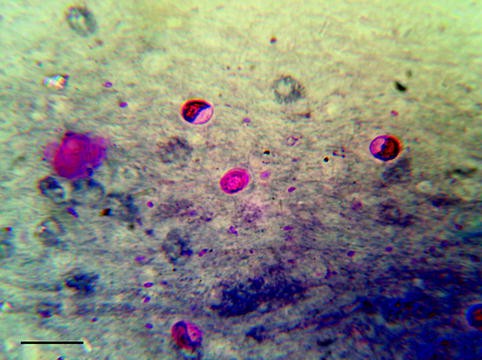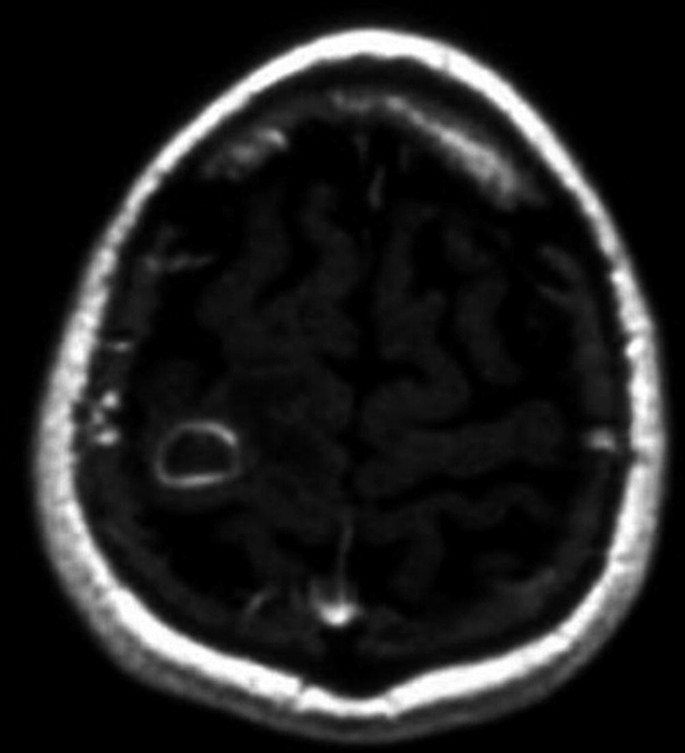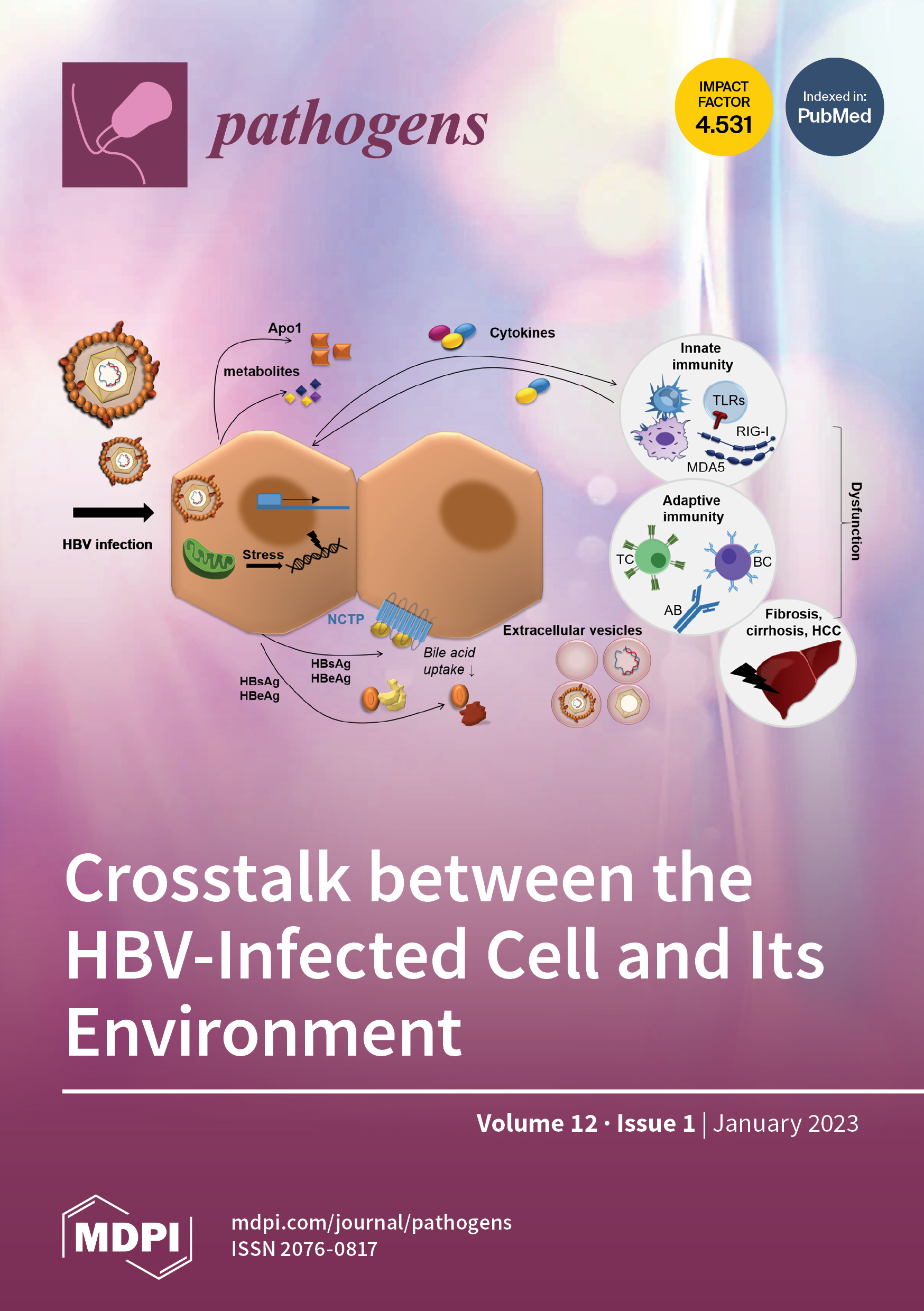Coccidian parasitic infections in liver transplant recipients Saad
Por um escritor misterioso
Descrição
Background
Coccidian parasites are reported in patients with low immunity. However, there is little knowledge of coccidian parasites in patients who have undergone liver transplantation.
Objective
The aim of this study was to assess coccidian parasitic infections in liver transplant recipients using microscopic and immunologic assays.
Patients and methods
Seventy-five participants were divided into two groups: group I included 50 participants from March 2011 to June 2013 during the first 6 months after liver transplantation and group II included 25 apparently healthy participants. Fecal specimens were subjected to microscopic examination for enteric protozoa stained with iodine, trichrome, and modified Ziehl-Neelsen stains. Furthermore, all fecal specimens were subjected to examination for Cryptosporidium oocyst surface antigen using the enzyme-linked immunosorbent assay (ELISA) test. Serum samples of all participants were tested for Toxoplasma IgM and IgG antibodies using a commercially available kit Toxoplasma IgM and IgG ELISAs.
Results
Of all participants, eight (16%) liver transplant recipients were positive for enteric coccidia. Cryptosporidium oocysts were identified in 12% of patients, whereas Cryptosporidium parvum oocyst surface antigen was detected in 20% of patients. Cyclospora oocysts were observed in 6%. Importantly, the positivity rate was high (62.5%) in those patients who had diarrhea. The Toxoplasma IgG antibodies were identified in 28% of patients, whereas the IgM antibodies were detected in 18% of patients. Out of nine Toxoplasma IgM-positive patients, five (55.6%) presented with lymphadenopathy and out of 14 patients seropositive for Toxoplasma IgG, 12 (85.7%) presented with lymphadenopathy.
Conclusion
Enteric coccidian parasites such as Cryptosporidium should always be taken into account among liver transplant recipients when investigating the etiologies of diarrhea, which occurs in patients in whom the immune system has been suppressed. Toxoplasma gondii is a common opportunistic parasite and causes enlarged lymph nodes among liver transplant recipients. Detection of anti-Toxoplasma IgM and IgG by the ELISA technique is an important screening test that is used commonly as it is rapid and easy to use.
Coccidian parasites are reported in patients with low immunity. However, there is little knowledge of coccidian parasites in patients who have undergone liver transplantation.
Objective
The aim of this study was to assess coccidian parasitic infections in liver transplant recipients using microscopic and immunologic assays.
Patients and methods
Seventy-five participants were divided into two groups: group I included 50 participants from March 2011 to June 2013 during the first 6 months after liver transplantation and group II included 25 apparently healthy participants. Fecal specimens were subjected to microscopic examination for enteric protozoa stained with iodine, trichrome, and modified Ziehl-Neelsen stains. Furthermore, all fecal specimens were subjected to examination for Cryptosporidium oocyst surface antigen using the enzyme-linked immunosorbent assay (ELISA) test. Serum samples of all participants were tested for Toxoplasma IgM and IgG antibodies using a commercially available kit Toxoplasma IgM and IgG ELISAs.
Results
Of all participants, eight (16%) liver transplant recipients were positive for enteric coccidia. Cryptosporidium oocysts were identified in 12% of patients, whereas Cryptosporidium parvum oocyst surface antigen was detected in 20% of patients. Cyclospora oocysts were observed in 6%. Importantly, the positivity rate was high (62.5%) in those patients who had diarrhea. The Toxoplasma IgG antibodies were identified in 28% of patients, whereas the IgM antibodies were detected in 18% of patients. Out of nine Toxoplasma IgM-positive patients, five (55.6%) presented with lymphadenopathy and out of 14 patients seropositive for Toxoplasma IgG, 12 (85.7%) presented with lymphadenopathy.
Conclusion
Enteric coccidian parasites such as Cryptosporidium should always be taken into account among liver transplant recipients when investigating the etiologies of diarrhea, which occurs in patients in whom the immune system has been suppressed. Toxoplasma gondii is a common opportunistic parasite and causes enlarged lymph nodes among liver transplant recipients. Detection of anti-Toxoplasma IgM and IgG by the ELISA technique is an important screening test that is used commonly as it is rapid and easy to use.

Parasitic Infections in Transplant Recipients: Toxoplasmosis

Cardiac Involvement with Parasitic Infections

PDF) Modulation of cyptosporidiosis by CD4 levels in chronic

PDF) Cyclospora cayetanensis: First report of imported and

PDF) Opportunistic Coccidian Parasites among Saudi Cancer Patients

Parasitic Diseases - ScienceDirect

Protozoa in respiratory pathology: a review

Coccidian parasitic infections in liver transplant recipients Saad

Protozoal Infections

Protozoal Infections

Protozoal Infections

Parasitic Infections in Transplant Recipients: Toxoplasmosis

Pathogens January 2023 - Browse Articles
de
por adulto (o preço varia de acordo com o tamanho do grupo)







